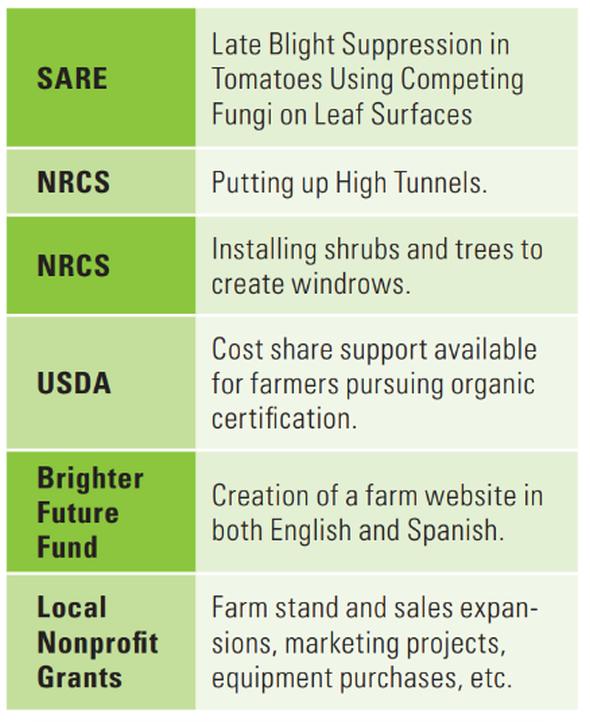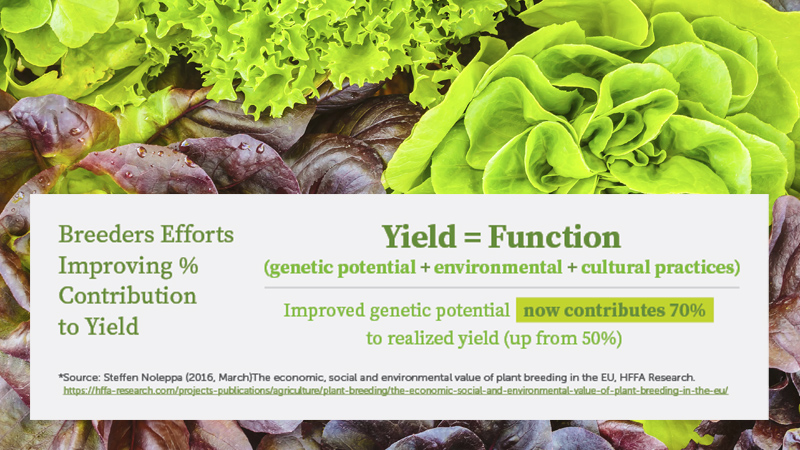Need Capital for Your Farm? Consider Grants
Grants can provide established farmers with funds for research and trials, high tunnel construction, equipment purchases, safety improvements, and other capital improvements.
Grants and project funding are most often provided to farmers by local and national nonprofit organizations, Natural Resources Conservation (NRCS), and USDA.
How to Improve Your Odds
Crafting a successful grant proposal starts with project design and strategic planning. Grants are highly competitive, so the process of writing a grant proposal should be helpful whether or not you receive the grant. Each time you apply, it refines your hopes for your farm’s future.
Before you begin to search for or write a grant proposal, evaluate your production and identify priorities for your business’ growth.
These questions can aid strategic farm planning and help you know which types of grants are right for your goals.
Which aspects or activities of the farm are currently successful and return the highest yields and profits? Is there opportunity for these activities to expand? What tools are needed for that expansion?
- What challenges does the farm face year after year? Are there any solutions that can address these challenges? What tools are needed for the solution?
- Which parts of the farm are most efficient/inefficient? How can you expand successes you have created to address current inefficiencies?
- What do you enjoy most about your work beyond profits? What motivates you to learn and explore in new ways?
- Are there conservation efforts that would support the goals of the farm and the sustainability of your growing practices?
Thinking through and writing answers to these questions will help you select an appropriate grant program for your farm.
What’s Available
Grant programs are often focused on specific areas.
NRCS runs programs that provide farmers with funds to make conservation improvements on their farms. These grants can be for a wide range of projects including
energy efficiency, high tunnel production, wind rows, wetland conservation, and more.
SARE (Sustainable Agriculture Research and Education) provides funds for research projects and trials that advance sustainable agricultural practices in the U.S.
Seeing specific examples of grant-funded projects can be helpful. The chart below shows a small selection of grants awarded.

Writing Tips
After identifying priorities for grant funds, you are ready to start writing a proposal. Proposal formats vary from application to application, but there are a few tips that help you win a proposal no matter the style of application.
What makes you different? A winning application paints a picture of you and your farm, highlighting unique qualities. Is the farm a third-generation business looking for ways to integrate sustainability into production? Is the farm experiencing a crisis due to labor shortages? Is it located in an extremely rural area or newly urbanized area?
Weaving the farm’s story and its recent history into a proposal is vital to its success.
Define your goals. A strong grant proposal also clearly illustrates a problem or goal the farm has and creates a strong solution to meet that goal.
Explain your need. What experiences have you had that have led you to needing funding for a specific project? Why is the project critical to the farm at this specific moment?
For example, has your soil testing consistently (over several years) indicated that it needs revitalization and intensive cover cropping? If so, which details of the soil samples can be included in the proposal to demonstrate that need? Has the farm lost revenue due to decreased pollination? If so, what clear data can you share in the proposal to show this problem?
A winning proposal includes detailed problems and persuasive solutions backed by facts, numbers and, when possible, outside collaborators such as extension agents, agronomists, nonprofit organizations, buyers, or other farmers.
Grants are an overlooked tool for farmers to use in continuing the development and evolution of your farm. Writing a proposal often leads to extra dollars to spend on important farm improvements and always leads to you gaining a clearer picture of your own hopes and goals.
Some Available Grants
- American Farmland Trust’s Brighter Future Fund
- FACT (Farm Animal Concerns Trust): Fund-a-Farmer Grant
- SSARE (Southern Sustainable Agriculture Research and Education) Producer Grants and On-Farm Research Grants
USDA Organic Certification Cost-Share










